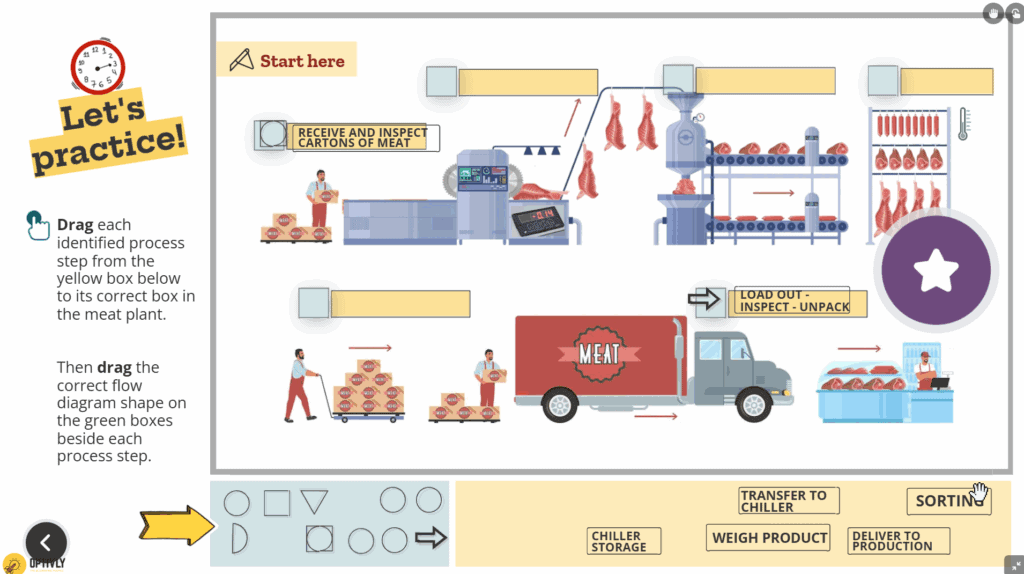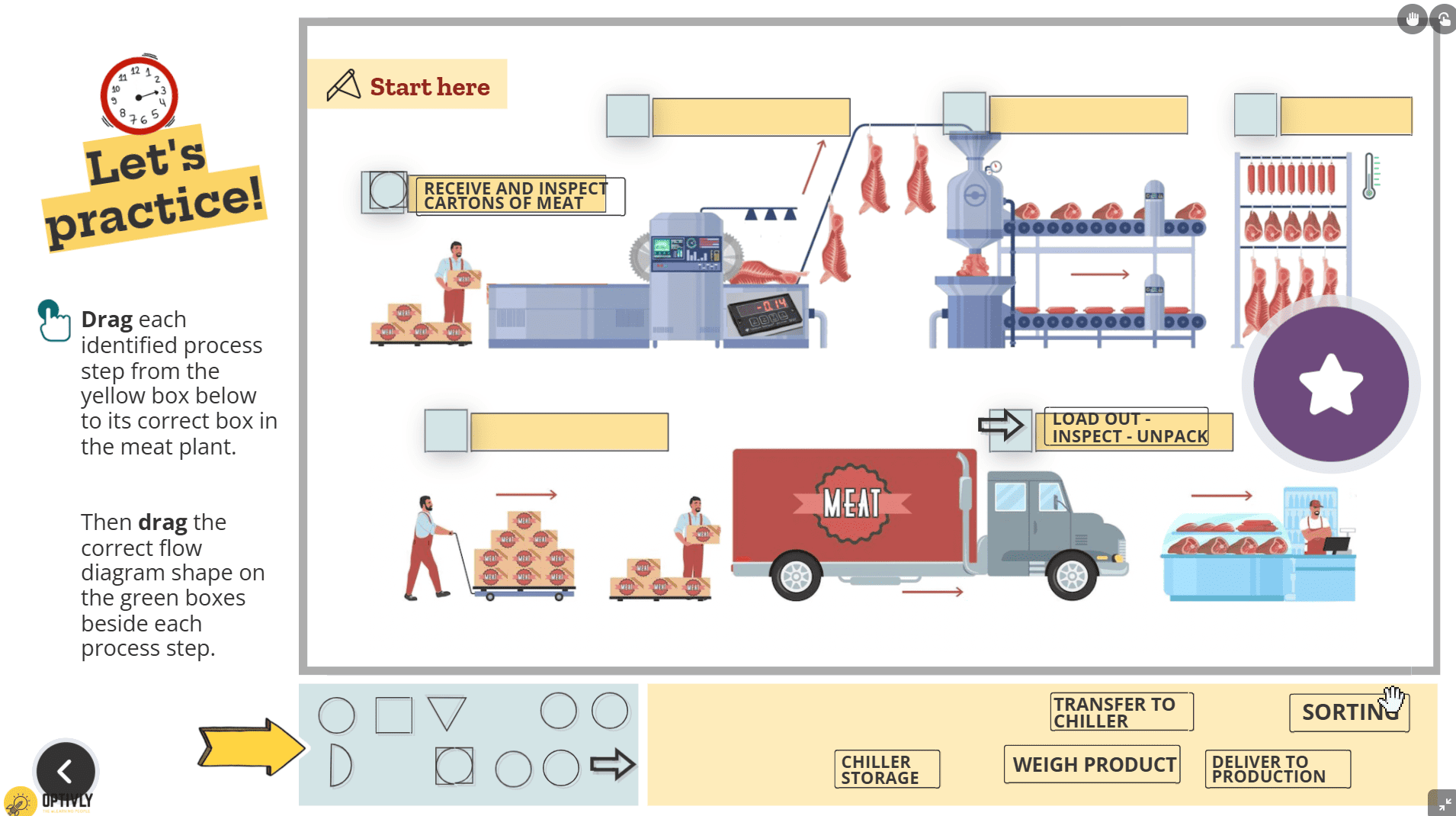
The Brief
Response Learning set out to adapt HACCP refresher training (a programme delivered every 3 years to relevant employees in the food processing industry to keep them current on the best manufacturing practices) to a digital format. Optivly came on board to navigate design challenges associated with this transition, such as:
Pitching content at the right level of specificity and breadth: Designing the course to remind learners of key information and practical applications without treating them like newcomers; selecting information relevant to the meat and food processing industries while keeping it approachable for non-specialised roles.
Facilitating independent learning: Engaging learners without requiring facilitator intervention.
Planning for possible technical and educational barriers: Addressing issues related to internet connectivity, lower educational level, low confidence in technology, and non-native English proficiency.
Ensuring device accessibility: Designing the course to be accessible on various devices, as many food processing workers do not regularly interact with computers.
The Brief
Response Learning set out to adapt HACCP refresher training (a programme delivered every 3 years to relevant employees in the food processing industry to keep them current on the best manufacturing practices) to a digital format. Optivly came on board to navigate design challenges associated with this transition, such as:
Pitching content at the right level of specificity and breadth: Designing the course to remind learners of key information and practical applications without treating them like newcomers; selecting information relevant to the meat and food processing industries while keeping it approachable for non-specialised roles.
Facilitating independent learning: Engaging learners without requiring facilitator intervention.
Planning for possible technical and educational barriers: Addressing issues related to internet connectivity, lower educational level, low confidence in technology, and non-native English proficiency.
Ensuring device accessibility: Designing the course to be accessible on various devices, as many food processing workers do not regularly interact with computers.


